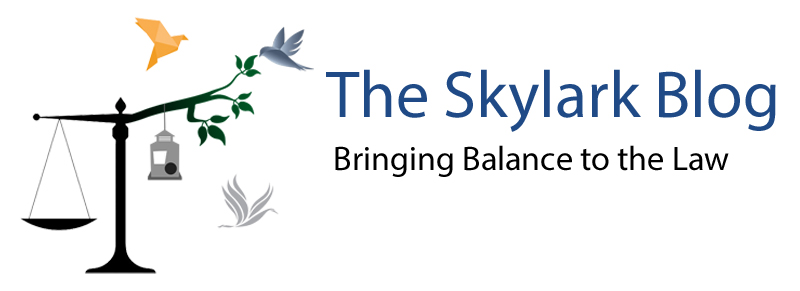Our last post addressed a recent decision by the Massachusetts Appeals Court to extend attorney's fees liability to opposing counsel on a frivolous appeal. In this post we discuss why was the appeal was considered so frivolous?
In Callahan v. Bedard, Case No. 13-P-914, decided on April 23, 2014 (available here), the Appeals Court was asked by a father to overturn a lower court's refusal to set aside a Judgment in a paternity case. The father had signed an agreement for settlement that was incorporated into a Judgment by the Probate and Family Court judge, and about six months later changed his mind and asked the Probate & Family Court to undo the Judgment pursuant to Mass.R.Dom.Rel.P. 60(b).
While not explicitly stated by the Appeals Court, the fact that the father was trying to back out of a deal he
had willingly made certainly weighed against him. In addition to the father's bad faith, though, the Appeals Court directly addressed the issue the father wanted to undo: the assignment of certain property (a condo) into a trust for the benefit of the child.
 The father argued that the Probate & Family Court did not have jurisdiction on a paternity action to include property division issues. The Appeals Court could have relied heavily on the father's own submission to the court's jurisdiction by signing the Agreement, or the fact that the Agreement itself is likely also a contract. Instead, the Appeals Court addressed the jurisdiction issue, and determined that "the inclusion and enforcement of the agreement lay well within the jurisdiction of the probate court."
The father argued that the Probate & Family Court did not have jurisdiction on a paternity action to include property division issues. The Appeals Court could have relied heavily on the father's own submission to the court's jurisdiction by signing the Agreement, or the fact that the Agreement itself is likely also a contract. Instead, the Appeals Court addressed the jurisdiction issue, and determined that "the inclusion and enforcement of the agreement lay well within the jurisdiction of the probate court."
The Appeals Court pointed to three grounds for the court's subject matter jurisdiction over the property division issues: equity jurisdiction, precedent, and Chapter 209C (the statute relating to actions between parents of children born out of wedlock). The Appeals Court's found that the mother won on all three of these evaluations:
In addition, this decision certainly opens the door for mediators and other alternative dispute resolution processes to include these issues in agreements between unmarried parents.
For more information on unmarried parents visit our website.
(Note: although “unpublished” opinions of Appeals Court panels do not create the same binding precedent as decisions of the full Appeals Court, these so-called “rule 1:28 decisions” are available online, and are frequently cited by attorneys and judges in Massachusetts for their persuasive value.)
In Callahan v. Bedard, Case No. 13-P-914, decided on April 23, 2014 (available here), the Appeals Court was asked by a father to overturn a lower court's refusal to set aside a Judgment in a paternity case. The father had signed an agreement for settlement that was incorporated into a Judgment by the Probate and Family Court judge, and about six months later changed his mind and asked the Probate & Family Court to undo the Judgment pursuant to Mass.R.Dom.Rel.P. 60(b).
While not explicitly stated by the Appeals Court, the fact that the father was trying to back out of a deal he
had willingly made certainly weighed against him. In addition to the father's bad faith, though, the Appeals Court directly addressed the issue the father wanted to undo: the assignment of certain property (a condo) into a trust for the benefit of the child.
The Appeals Court pointed to three grounds for the court's subject matter jurisdiction over the property division issues: equity jurisdiction, precedent, and Chapter 209C (the statute relating to actions between parents of children born out of wedlock). The Appeals Court's found that the mother won on all three of these evaluations:
"First, the decision to incorporate the parties' agreement into the judgment falls squarely within the probate court's general statutory authority to impose equitable remedies. Furthermore, as precedent such as Sutton v. Valois, supra, has established, the unmarried status of the father and mother does not diminish the court's equitable powers. Finally, the enforcement of paragraph 9 rests within its specific statutory jurisdiction to care for the welfare of a child born out of wedlock, as contemplated by c. 209C, §§ 3 & 9."It is unclear from this decision how far the Appeals Court would extend jurisdiction for these issues. Would the Appeals Court have upheld this property transfer if ordered by the Judge, rather than by Agreement? Probably not, but this decision might open the door to argue property division issues in paternity cases.
In addition, this decision certainly opens the door for mediators and other alternative dispute resolution processes to include these issues in agreements between unmarried parents.
For more information on unmarried parents visit our website.
(Note: although “unpublished” opinions of Appeals Court panels do not create the same binding precedent as decisions of the full Appeals Court, these so-called “rule 1:28 decisions” are available online, and are frequently cited by attorneys and judges in Massachusetts for their persuasive value.)

 Skylark.law
Skylark.law
Comments
Post a Comment